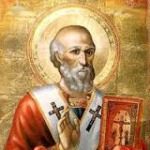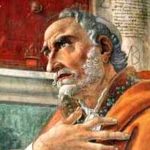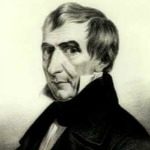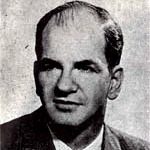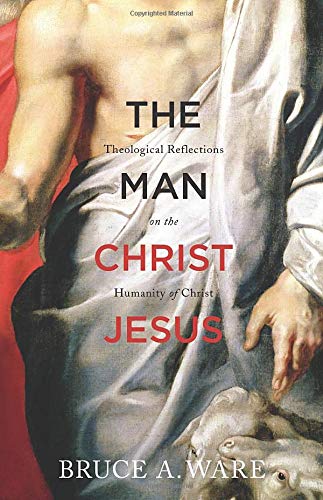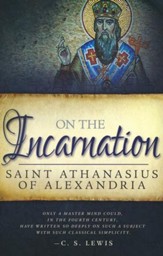Quotes about Jesus_Christ-Birth-Incarnation
He became what we are that He might make us what He is.
Mary was more blessed in accepting the faith of Christ than in conceiving the flesh of Christ. To someone who said, “Blessed is the womb that bore you,” [Jesus] replied, “Rather, blessed are they who hear the word of God and keep it.” Finally, for His brothers, His relatives according to the flesh who did not believe in Him, of what advantage was that relationship? Even her maternal relationship would have done Mary no good unless she had borne Christ more happily in her heart than in her flesh.
The best way to reconcile two disagreeing families is to make some marriage between them: Even so, the Word became flesh, and dwelt among us in the world that He might hereby make our peace, reconciling God to man and man to God. By this happy match the Son of God is become the Son of Man, even flesh of our flesh, and bone of our bones; and the sons of men are made the sons of God.
A Puritan Golden Treasury, compiled by I.D.E. Thomas, by permission of Banner of Truth, Carlisle, PA. 2000, p. 47.
We must always remember that union with Christ is possible because of the Son’s descent to earth, not because of our ascent into heaven. The basis of our union with Christ is Christ’s union with us in the incarnation. He became one with us so that we might become one with Him.
Be Who You Are by Kevin DeYoung taken from The Hole in Our Holiness by Kevin DeYoung, copyright 2012, Crossway Books, a division of Good News Publishers, Wheaton Illinois 60187, www.crosswaybooks.org, p. 98.
It is by far the most amazing miracle in the whole Bible – far more amazing than the resurrection and more amazing than the creation of the universe. The fact that the infinite, omnipotent, eternal Son of God could become man and join Himself to a human nature forever, so that infinite God became one person with finite man, will remain for eternity the most profound miracle and the most profound mystery in all the universe.
Systematic Theology, Zondervan, 1994, p. 563. Used by Permission. Get this book!
The baby Mary carried was not a Caesar, a man who would become a god, but a far greater wonder – the true God who had become a man!
The Birth of Christ by Kent Hughes taken from Luke by Kent Hughes – Volume 1, copyright 1998, Crossway Books, a division of Good News Publishers, Wheaton Illinois 60187, www.crosswaybooks.org. Page 83.
Here we commemorate the greatest and deepest demonstration of true love the world has ever known. For God looked down upon sorrowing, struggling, sinning humanity and was moved with compassion for the contrary, sheep-like creatures He had made. In spite of the tremendous personal cost it would entail to Himself to deliver them from their dilemma He chose deliberately to descend and live amongst them that He might deliver them. This meant laying aside His splendor, His position, His prerogatives as the perfect and faultless One. He knew He would be exposed to terrible privation, to ridicule, to false accusations, to rumor, gossip and malicious charges that branded Him as a glutton, drunkard, friend of sinners and even an imposter. It entailed losing His reputation. It would involve physical suffering, mental anguish and spiritual agony. In short, His coming to earth as the Christ, as Jesus of Nazareth, was a straightforward case of utter self-sacrifice that culminated in the cross of Calvary. The laid-down life, the poured-out blood were the supreme symbols of total selflessness. This was love. This was God. This was divinity in action, delivering men from their own utter selfishness, their own stupidity, their own suicidal instincts as lost sheep unable to help themselves.
A Shepherd Looks at Psalm 23, Permission by Zondervan, www.zondervan.com, 1970, p. 107-108. Get this book!
What self denial! What self abasement! What self emptying! He, whom no infinitudes can hold, is contained within infant’s age, and infant’s form. Can it be, that the great “I AM THAT I AM” shrinks into our flesh?
The central miracle asserted by Christians is the incarnation. They say that God became man.
Non-Christians seem to think that the Incarnation implies some particular merit or excellence in humanity. But of course it implies just the reverse: a particular demerit and depravity. No creature that deserved Redemption would need to be redeemed. They that are whole need not the physician. Christ died for men precisely because men are not worth dying for; to make them worth it.
In light of the profound reality of Jesus’ full and uncompromised deity, His incarnation was the most profound possible humiliation. For Him to change in any way or to any degree, even temporarily by the divine decree of His Father, required descent. By definition, to forsake perfection requires taking on some form of imperfection. Yet without forsaking or in any way diminishing His perfect deity or His absolute holiness, in a way that is far beyond human comprehension, the Creator took on the form of the created. The Infinite became finite, the Sinless took sin upon Himself. The very heart of the gospel of redemption is that the Father “made Him who knew no sin to be sin on our behalf, so that we might become the righteousness of God in Him” (2 Cor. 5:21). Although that infinitely marvelous and cardinal gospel truth is impossible to understand it is necessary to believe.
It’s important to understand that Jesus did not become the second, or last, Adam (1 Cor. 15:45), in the sense of being like pre-Fall mankind. Rather, in the incarnation, He took upon Himself all the frailties, limitations, problems, and suffering that were the heritage of the Fall, enduring all its terrible earthly consequences.
The Almighty appeared on earth as a helpless human baby, needing to be fed and changed and taught to talk like any other child. The more you think about it, the more staggering it gets. Nothing in fiction is so fantastic as this truth of the Incarnation.
The modern intelligent mind, which has had its horizons widened in dozens of different ways, has got to be shocked afresh by the audacious central fact that as a sober matter of history, God become one of us.
If God became incarnate, what kind of man would He be? If God became a man we would expect His human life to be sinless. Jesus was. If God were to become a man we would expect Him to be a model of purity. Jesus was. If God were a man we would expect His words to be the greatest ever spoken. Jesus’ words were. If God were to become a man we would expect Him to exert a profound power over human personality. Jesus did. If God were to become a man we would expect some supernatural acts. And Jesus did them. If God were to become a man we would expect Him to manifest the love of God. And Jesus did in dying on the cross.
The name Emmanuel takes in the whole mystery. Jesus is "God with us." He had a nature like our own in all things, sin only excepted. But though Jesus was "with us" in human flesh and blood, He was at the same time very God.
Though still set apart, retaining all His holiness and deity, God in His infinite wisdom became a man that first Christmas morning and chose to dwell intimately and personally amongst His creation. The God who created stars larger than our earth’s orbit and ten million times brighter than our sun, created the womb where He would grow and the manger where He would lay. The God who dwelt in perfect glory through eternity past would be wrapped in swaddling cloths to share space with barnyard animals. The God who deserved every right to born in a palace to royal people, humbled Himself and chose Bethlehem and a poor betrothed teenage couple named Mary and Joseph. Most humiliating was the fact that God, though without sin, took on human flesh with all its weaknesses and problems and chose to dwell among sinners.
John began his epistle by saying, “What was from the beginning, what we have heard, what we have seen with our eyes, what we have looked at and touched with our hands, concerning the Word of Life” (1 Jn. 1:1). There was a time when God’s people cried out for a word from their Creator (400 years of silence), now they heard from the living Word Himself in face-to-face dialogue. There was a time when no one could see the face of God without dying (Ex. 33:20), but Jesus said, “He who has seen Me has seen the Father” (Jn. 14:9). There was a time when touching the ark improperly resulted in death (2 Sa. 6:6-7), but now John reports that God was touched with his own hands.
Jesus had to be our Immanuel to be our Savior and once He becomes our Savior He becomes our Immanuel.
The doctrine of the Incarnation means that two distinct natures (divine and human) are united in one Person: Jesus. Jesus is not two people (God and man). He is one Person: the God-man. Jesus is not schizophrenic. When the Word became flesh He did not cease to be the Word. The Word veiled, hid, and voluntarily restricted the use of certain prerogatives. But God cannot cease to be God. In other words, when the Word became flesh He did not commit divine suicide.
Copied from Pleasures Evermore by Sam Storms © 2000, p. 152. Used by Permission of NavPress – www.navpress.com. All rights reserved. Get this book!
The Word became flesh! God became human! The invisible became visible! The untouchable became touchable! Eternal life experienced temporal death! The transcendent one descended and drew near! The unlimited became limited! The infinite became finite! The immutable became mutable! The unbreakable became fragile! Spirit became matter! Eternity entered time! The independent became dependent! The almighty became weak! The loved became hated! The exalted was humbled! Glory was subjected to shame! Fame turned into obscurity! From inexpressible joy to tears of unimaginable grief! From a throne to a cross! From ruler to being ruled! From power to weakness!
Copied from Pleasures Evermore by Sam Storms © 2000, p. 153-154. Used by Permission of NavPress – www.navpress.com. All rights reserved. Get this book!
He was conceived by the union of divine grace and human disgrace. He who breathed the breath of life into the first man is now Himself a man breathing His first breath. The King of kings now sleeping in a cow-pen. The Creator of oceans and seas and rivers afloat in the womb of His mother. God sucking His thumb. The Alpha and Omega learning His multiplication tables. He who was once surrounded by the glorious stereophonic praise of adoring angels now hears the lowing of cattle, the bleating of sheep, the stammering of bewildering shepherds. He who spoke the universe into being now coos and cries. Omniscient Deity counting His toes… From the robes of eternal glory to the rags of swaddling clothes. The omnipresent Spirit, whose being fills the galaxies, confined to the womb of a peasant girl. Infinite power learning to crawl.
Copied from Pleasures Evermore by Sam Storms © 2000, p. 156. Used by Permission of NavPress – www.navpress.com. All rights reserved. Get this book!
What do we mean by the word “Incarnation?” The idea is found in several texts which speak of Jesus as “coming in the flesh” (1 Jn. 4:2; 2 Jn. 7), being “sent in the flesh” (Rom. 8:3), “appearing in the flesh” (1 Tim. 3:16); He also “suffered in the flesh” (1 Pet. 4:1), “died in the flesh” (1 Pet. 3:18), made peace by abolishing “in the flesh the enmity” (Eph. 2:15), and “made reconciliation in the body of His flesh” (Col. 1:21-22). In sum, “the Word became flesh” (John 1:14). Thus, by the Incarnation we mean that the eternal Word or second person of the Trinity became a man or assumed human flesh at a point in time, yet without ceasing to be God.
Incarnation and Humanity, November 6, 2006, www.enjoyinggodministries.com. Used by Permission.
The eternal Word, God the Son, entered into this world by being born as a human being. Therefore, it isn’t correct to say that Jesus has always existed or that Jesus was in the beginning with God (v. 1). The Son of God has always existed. The Second person of the Trinity, the Word, was in the beginning with God. But Jesus is the human name given to the second person of the Trinity when he took to Himself flesh. The Word was never called Jesus until Joseph did so in obedience to the command of the angel in Matthew 1.
Incarnation and Humanity, November 6, 2006, www.enjoyinggodministries.com. Used by Permission.
His being does not consist of material substance, which is created. As uncreated, He is pure spirit. No human eye can hope to “see” Him except to the degree that He chooses to reveal Himself in some mediated form compatible with the finitude of man or in the incarnation of His Son. The glorious good news is that the invisible God became visible in the person of Jesus (John 1:18).
One Thing, Christian Focus, © Enjoying God Ministries, 2004, p.55. www.enjoyinggodministries.com. Used by Permission.
1. The doctrine of the Incarnation means that two distinct natures (divine and human) are united in one Person: Jesus. Jesus is not two people (God and man). He is one person: the God-man. Jesus is not schizophrenic.
2. When the Word became flesh He did not cease to be the Word. The Word veiled, hid, and voluntarily restricted the use of certain divine powers and prerogatives. But God cannot cease to be God. In other words, when the Word became flesh He did not commit divine suicide.
3. When the Word once became flesh He became flesh forever. After His earthly life, death, and resurrection, Jesus did not divest Himself of the flesh or cease to be a man. He is a man even now at the right hand of God the Father. He is also God. He will always be the God-man. See 1 Cor. 15:28; Col. 2:9; 1 Jn. 2:7 (note use of present tense).
4. Thus, we might envision Jesus saying: “I am now what I always was: God (or Word). I am now what I once was not: man (or flesh). I am now and forever will be both: the God-man.
Incarnation and Humanity, November 6, 2006, www.enjoyinggodministries.com. Used by Permission.
Emmanuel. God with us. He who resided in Heaven, co-equal and co-eternal with the Father and the Spirit, willingly descended into our world. He breathed our air, felt our pain, knew our sorrows, and died for our sins. He didn’t come to frighten us, but to show us the way to warmth and safety.
He is the King of kings, the radiance of His glory, the Lord of the spaceless, fabulous, infinite universe, omniscient, omnipotent, omnipresent, unspeakable holy, dwelling in light, unapproachable, changeless … and yet He condescended to be enclosed in lowly human flesh, to be born a despised Judean, in a filthy stable, in the womb of a simple Israeli woman and without fanfare or pomp.
The Creator had woven Himself a robe of virgin flesh.
Remaining what He was He became what He was not.
